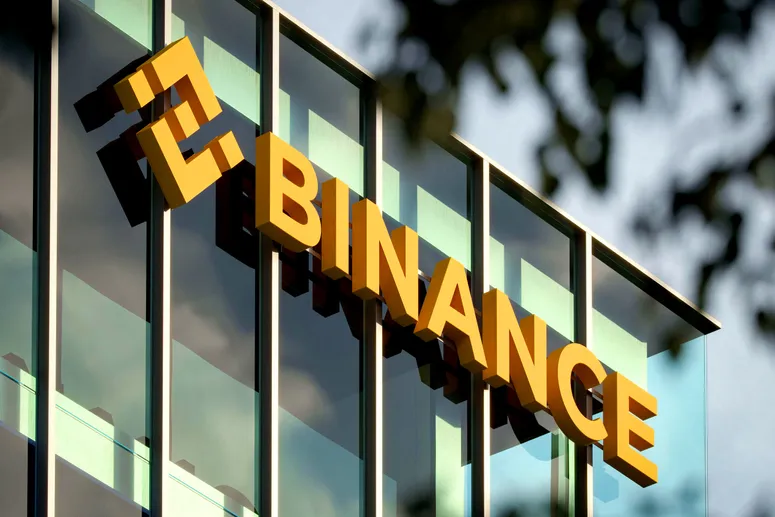Binance CEO Changpeng Zhao (CZ) admits to violating US law, pleads guilty, resigns as CEO of Binance, and asks why he cannot leave the US.


Binance founder Changpeng Zhao has pleaded guilty to violating anti-money laundering criminal guidelines and agreed to a significant settlement with federal authorities. The move was a major setback for Binance, the world’s largest cryptocurrency exchange, and resulted in a $4.3 billion fine. This is one of the largest fines ever levied on a business. Zhao himself faces up to 18 months in prison, a $50 million fine, and a three-year ban from working on the exchange for violating the Bank Secrecy Act. He also agreed to step down as Binance’s CEO and be replaced by Richard Teng, the company’s head of global regional markets.
The key points of this case can be summarized as follows:
- Changpeng Zhao and Binance pleaded guilty to violating anti-criminal money laundering guidelines and were fined $4.3 billion, the largest fine ever imposed on a company.
- Zhao agreed to step down as CEO as part of a plea agreement that includes up to 18 months in prison, a $50 million fine and a ban on working at the exchange for three years for violating the Bank Secrecy Act.
- The guilty plea was the result of a three-year investigation by the Justice Department that focused on Binance’s failure to comply with the Bank Secrecy Act, operating an unregistered money transfer business, and violating sanctions laws.
- The investigation highlighted Binance’s lack of anti-money laundering measures, allowing approximately $900 million in transactions that violated sanctions against Iran and its efforts to evade U.S. regulatory oversight.
- Zhao’s resignation and guilty plea were framed as taking responsibility for these issues, with the goal of prioritizing the community, Binance, and his personal responsibility.
Why CZ can’t leave the U.S.
- Flight hazards: A federal judge ruled that CZ’s “tremendous wealth” and lack of ties to the United States pose a serious flight risk, reversing an earlier decision to allow him to return to his home in the United Arab Emirates before sentencing. His family lives in the UAE and he is considered to have advantageous status there, further increasing the risk that he will not return for sentencing.
- No extradition treaty: The United States does not have an extradition treaty with the UAE, making it extremely difficult for U.S. authorities to ensure CZ’s return if he is allowed to leave.
- Wealth and property abroad: The judge highlighted CZ’s significant wealth and assets outside the United States as factors contributing to his flight risk.
Period CZ must be located in the United States.
- CZ must remain in the United States until sentencing, which is scheduled for February 23, 2024.
Charges and fines after pleading guilty
- fee: CZ pleaded guilty to violations of the Bank Secrecy Act related to violations of the Anti-Money Laundering Act by Binance, a company he founded in the United States, and also pleaded guilty to charges related to violations of sanctions and remittance laws.
- Financial Penalties:
- Binance agreed to pay a $4.3 billion fine as part of the settlement.
- CZ personally agreed to pay a $50 million fine as part of the plea agreement.
- As part of the agreement, CZ will also pay a $150 million penalty to the U.S. Commodity Futures Trading Commission (CFTC).
potential sentence
- CZ could be sentenced to anywhere from a few months to up to 10 years in prison, although he can appeal a sentence of more than 18 months.
A rebuttal to the judge’s decision
- appeal: CZ can appeal the judge’s decision on travel restrictions. Appeals are reviewed by higher courts, and lower court decisions may be overturned if there are errors in law or procedure.
- Request to Modify Bail: CZ may request modification of bail conditions, alleging new evidence or changes in circumstances that may alleviate the court’s flight risk concerns.
- Compliance and cooperation: Demonstration of additional compliance and cooperation with U.S. authorities may also be used to argue for modified terms. Although this is unlikely to go directly against travel restrictions, it may impact considerations relating to his sentencing or future legal obligations.
The judge’s ruling reflects concerns about CZ’s ability and incentive to return to the United States for sentencing, given CZ’s significant resources and the absence of a formal legal mechanism to ensure his return from the UAE. The legal strategies that CZ and his attorneys can use to respond to or comply with the judge’s decision will be critical in the coming months until his sentencing is handed down.
Binance CEO Changpeng Zhao (CZ) admits to violating US law, pleads guilty, resigns as CEO of Binance, and asks why he cannot leave the US. First appeared on BTC Wires.




